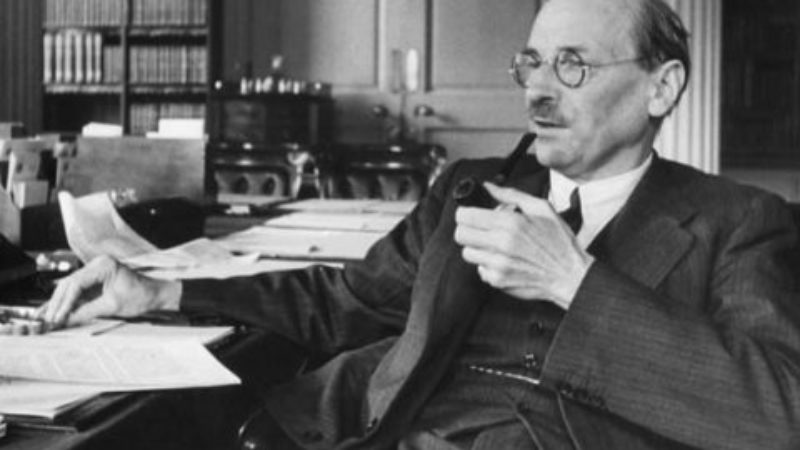
As election day gets closer, Labour will face growing pressure to set out a clearer vision for Britain’s future. In power, Labour has applied two distinct philosophies of government. The first was Clem Attlee’s model of ‘social democracy’. Then there was Tony Blair’s ‘third way’.
The post-war model of social democracy was pioneering and transformative. It offered a clean break with the past and a set of new popular governing principles from egalitarianism to a more active state and stronger citizen rights. Its pro-equality approach to government enjoyed a broad, if shallow, public and political consensus.
Greater democratic control over resources through a mix of progressive taxation and public ownership ensured that, for the first time, all citizens shared in growing prosperity while vital social spending rose more quickly than the economy. These changes in the way resources were used helped to drive the historic achievement of peak equality and a low point for poverty in the late 1970s.
New Labour’s ‘third way’ was closer to Thatcher than Attlee
These gains were short-lived. From the early 1980s, many of the post-war gains were unraveled. As in the pre-1939 era, a new pro-market, anti-egalitarian state became an agent of inequality while poverty levels doubled. Resource use was determined more heavily by the rules of the market.
Labour in 1997 responded to this inheritance with a philosophy of the third way. This located the party – according to its 1997 manifesto – between “the old left and the Conservative right”. The third way bought into some of the key orthodoxies of post-1979 neoliberal thinking, including its pro-inequality bias and a significantly privatised economy. This was a governing philosophy closer to Thatcher than Attlee.
New Labour had many achievements: devolution, the Good Friday Agreement, the national minimum wage, higher social spending and Sure Start. There was also a bold anti-poverty programme, but one which ignored what was happening at the top.
Yet the processes driving ever-rising top fortunes also brought downward pressure on the living standards and life chances of the poorest third. Labour’s biggest failure was to leave the pro-inequality, anti-state, over-privatised economy intact. This made it much easier for successive governments to dismantle most of the 1997-2010 gains.
The economy increasingly serves the interests of a billionaire class
If Labour wins in 2024, the party will inherit multiple social crises and a much weaker economy compared with 1997. Many of the nation’s most important institutions, from the NHS to the housing system, are broken. The economy has one of the lowest levels of social ownership among rich nations and is badly under-invested.
With my research suggesting spending on extreme luxuries – from private jets to super-yachts – will exceed state spending on social care, children’s services and young adult training, the economy increasingly serves the interests of a billionaire class rather than the common good. This is the inevitable outcome of a toxic mix of over-privatisation and extreme concentrations of wealth.
As in 1945, there has rarely been a better opportunity for radical change. The public are hungry for a fairer society. Neoliberalism has been fully discredited. There are growing calls for a reset of capitalism.
Labour must seize the opportunity for transformative change
Seizing the 2024 moment means offering a politics of wellbeing and a very different set of priorities based on several key principles. First, Labour must return to its founding goals and become, once again, an agent of equality.
Secondly, it must tackle the question of wealth. Wealth holdings are worth seven times the size of the economy, but the surge in private asset levels has been almost entirely captured by the already rich. Despite a century of full democracy, the poorest half of the population has never owned more than a tenth of the economy. Even a modest hike in wealth taxes could help deliver the resources to kickstart social reconstruction.
Thirdly, it’s time to rethink the goal of a private property owning democracy in favour of wealth-sharing. This requires a new emphasis on social ownership and new forms of people’s capital that give all citizens a direct stake in the economy (but using a very different model from that of 1945 public ownership). Achieving a better society also requires more democratic control over the economy so that scarce resources can be steered to meet unmet basic needs and the everyday economy.
Given the state of the public finances, and the scale of the task, achieving these goals would require more than one term. But progress depends on a new political vision for the future, one we might call social democracy 2.0. Such a vision would prioritise a narrower income and wealth gap, cut carbon emissions, which are heavily concentrated amongst the rich, and boost community resilience.
The opportunities for transformative change are rare and cannot afford to be missed. Attlee seized the opportunity in 1945. It’s time to do the same eight decades later.
Stewart Lansley is the author of ‘The Richer, The Poorer – How Britain Enriched the Few and Failed the Poor. A 200-Year History‘. The publishers are offering the book at half price in January. Click on the link and use the code BUP23.




More from LabourList
Economic stability for an uncertain world: Spring Statement 2026
‘Biggest investment programme in our history’: Welsh Labour commit to NHS revamp if successful in Senedd elections
James Frith and Sharon Hodgson promoted as government ministers